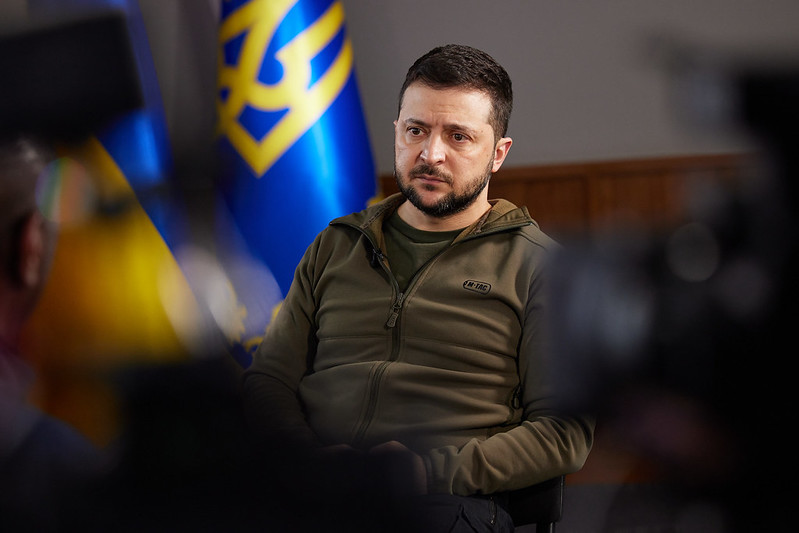The indefinite postponement of the Ukrainian presidential elections shows how war can derail democratic processes
Four years ago, Volodymyr Zelensky pulled off a shock victory in the Ukrainian presidential elections. As the Russian invasion of Ukraine continues into its third year, 31 March 2024 – the date set for the next election – came and went without any votes being cast in a country still under martial law.
For Oleg Kolesnik, a student at Donetsk National University, elections are far down the list of concerns.
“This is not the time for elections, because every Ukrainian, every politician and soldier, needs to concentrate on the war against Russian occupation,” he says. “Only after that can we conduct elections, because right now it’s impossible.”
Polling suggests the Ukrainian public overwhelmingly support Zelensky’s decision to postpone the election. A survey conducted by Kyiv’s Institute of Sociology in October 2023 found that 81 per cent believe the elections should be postponed until after the end of the war.
Yet despite some Western countries pressuring Zelensky to go ahead with the scheduled elections, Elena Davlikanova, Fellow at the Center for European Policy Analysis (CEPA), says there is simply not enough money for an election campaign.
“Basically the whole budget that we earn ourselves goes towards buying weapons, while the other part of the budget that is subsidised by western aid goes to support the economy,” she explains. “That’s why [Zelensky] said if the West wants us to hold elections then they should share this responsibility financially as well.”
For Davlikanova, a major concern is the inability of the armed forces to participate. With estimates of between 200,000-300,000 soldiers currently on the frontline, holding an election would exclude a large section of the population from both voting and running for office.
There is also the issue of safety. Russia has indiscriminately targeted civilians with its bombing campaign, so there are fears polling stations would become military targets. Valeriia Syzoniuk, a postgraduate student, thinks the risks to voters are too high.
“They’re targeting civilians, parks, places where people walk. Let’s say we organise the election, will they target them?” says Syzoniuk. “So if you ask, am I for or against it? I would say I’m against the election at the moment.”
Unlike Ukraine, Russia held its own election in March, but the result was internationally condemned as illegitimate. Davlikanova acknowledges this paradox, which has played into Putin’s attempts to portray Ukraine as authoritarian and Russia as democratic.
“The lack of elections helps this narrative, but in reality it doesn’t affect the truth,” she says. “We are trying to explain that Russia holding elections is not a democratic country, because elections themselves are not a sign of democracy. We don’t want ritual voting [like in Russia], we want political processes.”
With no foreseeable end to what has become a war of attrition, it’s not clear to Syzoniuk when the next opportunity to vote might arise.
“Who knows, maybe I will live forever under this state of war. Does this mean we will have Zelensky forever? I don’t think so. I think if [war] continues, we will bring this up again, but at the moment I don’t think it’s the right time,” she says.
For now, it seems elections are both undesirable and unfeasible in Ukraine. For young Ukrainians like Kolesnik and Syzoniuk, the Zelensky administration is right to focus its efforts on fighting the Russian invasion.
Feature image: Zelensky has decided to indefinitely postpone the Ukrainian elections. Photo credit: President Of Ukraine/Flickr.

